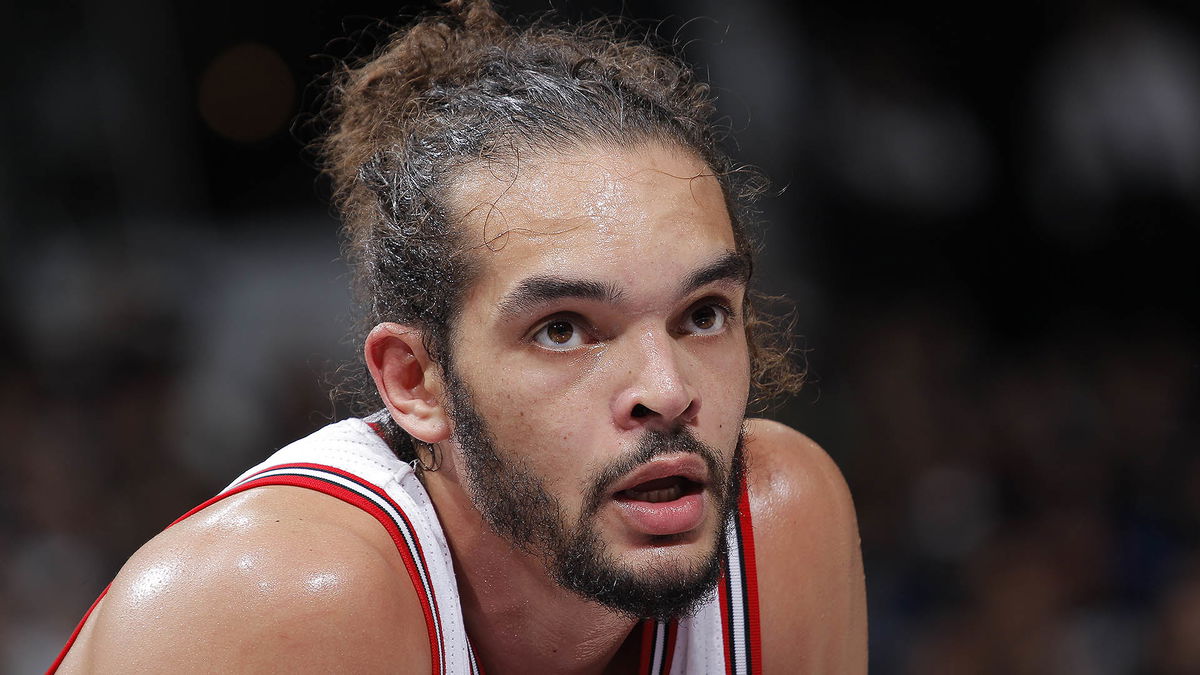
Getty
SACRAMENTO, CA – NOVEMBER 20: Joakim Noah #13 of the Chicago Bulls looks on during the game against the Sacramento Kings on November 20, 2014 at Sleep Train Arena in Sacramento, California. NOTE TO USER: User expressly acknowledges and agrees that, by downloading and or using this photograph, User is consenting to the terms and conditions of the Getty Images Agreement. Mandatory Copyright Notice: Copyright 2014 NBAE (Photo by Rocky Widner/NBAE via Getty Images)

Getty
SACRAMENTO, CA – NOVEMBER 20: Joakim Noah #13 of the Chicago Bulls looks on during the game against the Sacramento Kings on November 20, 2014 at Sleep Train Arena in Sacramento, California. NOTE TO USER: User expressly acknowledges and agrees that, by downloading and or using this photograph, User is consenting to the terms and conditions of the Getty Images Agreement. Mandatory Copyright Notice: Copyright 2014 NBAE (Photo by Rocky Widner/NBAE via Getty Images)
“I’m a third-generation athlete,” Joakim Noah once revealed on the All The Smoke podcast. How? His grandfather, Zacharie Noah, was a celebrated soccer player who led Sedan-Torcy to victory in the 1961 Coupe de France. As for his father, Yannick, he’s not just any tennis player. In Noah’s words, his father is “the last French guy to win the French Open… the only African to ever even be a top 10 player.”
Watch What’s Trending Now!
After a 37-year drought for French players, Yannick made history by winning the 1983 French Open. This victory etched his name into tennis history. In fact, his impact on the sport earned him a spot in the International Tennis Hall of Fame in 2005. Beyond tennis, Yannick’s passion for music and his dedication to his roots have made him beloved in France.
ADVERTISEMENT
Early childhood
Born on May 18, 1960, in Sedan, France, Yannick shares his birthplace with his son Noah. Both carry African heritage, as Zacharie Noah was originally from Cameroon. A rich blend of cultures marked Yannick’s childhood, especially during the time he spent in Cameroon. This experience was pivotal in shaping his worldview, but it was in France where he honed his tennis skills and rose to stardom.
Currently, Yannick Noah resides in France, having lived in various parts of the country over the years, including Paris and the serene French countryside. He often shares glimpses of his life outside of tennis through social media. So what about his family?
Top Stories
“Rest in Peace”: Charles Barkley Sends Prayers to NBA Legend Who’s Still Alive
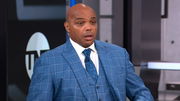
Lakers Make Decision on Jonathan Kuminga Trade as Insider Confirms Front Office Plans
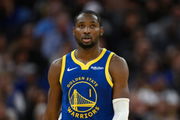
Lakers Set Rui Hachimura Trade Price Amid Links to $4.5M Pelicans Star

Troubling WNBA Reality Emerges as Caitlin Clark, Fever Add Paige Bueckers to Preseason Plans
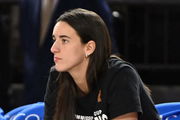
Allen Iverson Under Fire After NBA Champion Accuses 76ers Legend of Misconduct
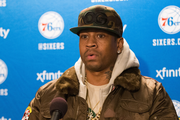
Yannick Noah has had an eventful personal life, marrying twice. His first marriage was to British model Heather Stewart-Whyte, and together they had two children. Though their marriage eventually ended in divorce, Yannick later found love again. In 2003, he married Isabelle Camus, a French journalist and producer. Together, they’ve been a strong and supportive duo, often making appearances at public events, showing their enduring partnership.
ADVERTISEMENT
In his family, Yannick is a proud father of three children. His two oldest, Joakim and Yelena, came from his marriage to Heather Stewart-Whyte. Joakim Noah, of course, followed in his father’s athletic footsteps, making waves in the NBA. Then, from his second marriage to Isabelle, came Jenaya, completing his close-knit family.
ADVERTISEMENT
Papa Noah’s tennis career
Yannick started training at the renowned C.N. Pontoise, a French club known for shaping young talent. This gave him the opportunity to refine his skills from a young age, participating in local tournaments across France. During Yannick’s amateur career, he secured several significant awards, including national titles in the juniors. In addition, he was a key member of France’s junior national team, representing the country in international competitions.
The most memorable moment of Yannick’s amateur career came in 1977 when he won the French Open Junior Championship, a major stepping stone. That same year, he turned pro, beginning what would become a remarkable and influential career in tennis.
Yannick was one of the first black tennis players to step into the spotlight in post-Arthur Ashe era. For his athletic shots, on-court antics, and free-spirited vibe, often people labeled him as a bit gimmicky. Critics would say things like, “Flash over substance” or “A guy who’d always be good but never great.” But, everything changed when he became France’s next big tennis hope.
ADVERTISEMENT
His big breakthrough came in 1983 at the French Open. He made a stunning run, dropping only one set and defeating seven-time slam winner Mats Wilander. With that victory, he shattered any lingering doubts about his ability to maintain patience under pressure. Not only did Yannick bring the French Open crown back to France for the first time in 37 years, but he also had a full-circle moment by being interviewed afterward by the legendary Arthur Ashe himself.
View this post on Instagram
Yannick quickly became a fan favorite, but that’s not the end. He then went on to achieve quarter and semi-final appearances at both the Australian and US Open. Yet, it was at the French Open where he truly shined, reaching the quarters or better five times. Remarkably, he remains the last male French player to clinch the title.
ADVERTISEMENT
Furthermore, the former Chicago Bulls star’s father’s versatility shone even brighter through his doubles success. After winning the singles title in 1983, he teamed up with Henri Leconte to take the 1984 French Open in doubles. He also made a splash at the ’85 US Open, reaching the final and earning the top doubles ranking in ’86, which he held for 19 weeks. The balance he maintained between singles and doubles—23 pro singles titles and 16 in doubles—is something you rarely see today. While his playing career ended, he wasn’t done with the sport.
His understanding of the game led him to become the ideal coach for France’s Davis Cup team. In 1991, he stepped into this significant role, having already amassed 39 wins and a finalist finish as a player.
Under his guidance, the team clinched the cup championship in ‘91, defeating the top-seeded USA team, and again in 1996 against Sweden. Even after 21 years, he returned to lead a new generation of tennis stars like Richard Gasquet and Jo-Wilfried Tsonga to another championship victory over Belgium, solidifying his legacy in the sport.
ADVERTISEMENT
Joakim Noah’s father’s dedication to the sport continued as he took on the role of captain for the French wheelchair tennis team in the Paris 2024 Paralympic Games. When asked about his motivation for this role, he said, “It’s about friendship.” His bond with five-time Paralympic medalist Stéphane Houdet speaks volumes about his passion for the game and camaraderie, ensuring that he remains a significant presence in tennis long after his playing days.
Off-field ventures
After hanging up his playing shoes in 1991, he jumped right into the music scene. Known for his pop-infused reggae sound, Noah poured his heart into his music, requiring the same dedication he had on the court.
ADVERTISEMENT
However, it wasn’t an overnight success; he worked hard for a decade before his fourth album, Yannick Noah, hit big in 2000. That album went diamond in France and platinum in Belgium, marking the start of a string of successful albums, even leading to his U.S. debut in 2009 in New York City.
Joakim Noah’s father isn’t just about the glitz of fame; he’s equally committed to giving back. He actively runs his foundation, Fête le Mur, which brings tennis and education to inner-city kids across 74 locations worldwide.
Not to mention, he often donates his music and performance proceeds to various charities, including Sol En Si, which supports children affected by AIDS.
ADVERTISEMENT
ADVERTISEMENT
ADVERTISEMENT
ADVERTISEMENT